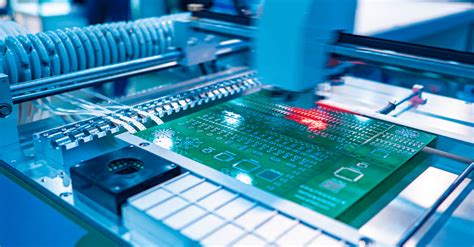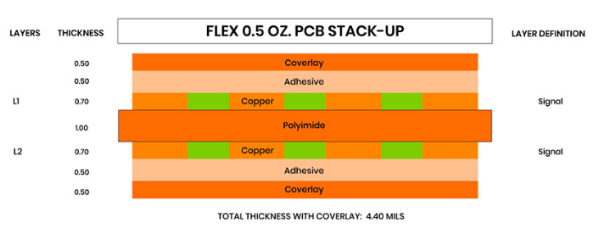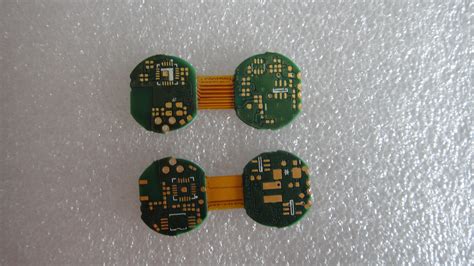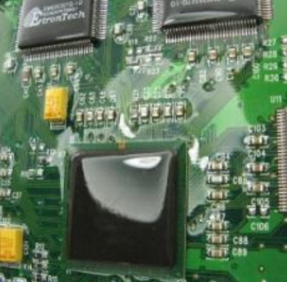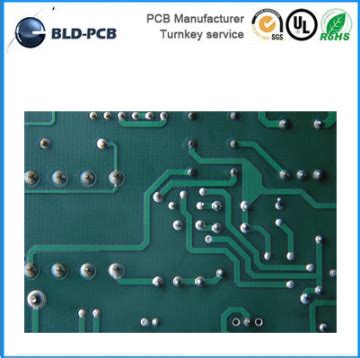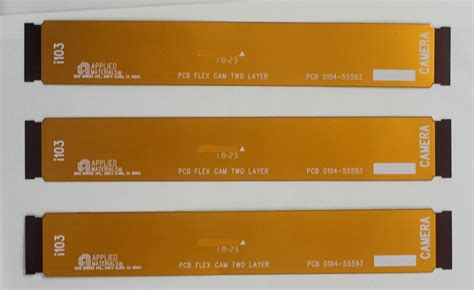Streamline Your Production with Turnkey PCB Assembly
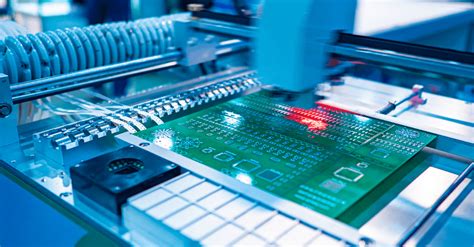
Key Takeaways
Turnkey PCB assembly services offer a comprehensive approach to electronics manufacturing, integrating design, component sourcing, PCBA (printed circuit board assembly), testing, and delivery into a single streamlined process. By partnering with a turnkey solution provider, businesses eliminate the complexities of managing multiple vendors, significantly reducing logistical delays and overhead costs. A key advantage lies in cost efficiency: consolidated procurement of components and bulk pricing minimize expenses, while automated assembly processes reduce labor costs. Additionally, end-to-end quality control—from design validation to final inspection—ensures reliability and compliance with industry standards, mitigating risks of defects or rework.
Time-to-market acceleration is another critical benefit, as integrated workflows enable faster prototyping and production scaling. Advanced PCB assembly technologies, such as surface-mount (SMT) and through-hole assembly, are optimized for precision, ensuring seamless transitions from design to mass production. Design optimization plays a pivotal role here; experienced providers analyze layouts for manufacturability, enhancing yield rates and minimizing material waste. Choosing the right turnkey PCB assembly partner requires evaluating technical expertise, supply chain resilience, and adherence to certifications like ISO or IPC-A-610. Ultimately, leveraging these services allows companies to focus on innovation while outsourcing operational complexities, effortlessly aligning production with market demands.

Understanding Turnkey PCB Assembly Services
Turnkey PCB assembly services provide a comprehensive, end-to-end solution for transforming electronic designs into functional products. By integrating PCB assembly (PCBA) processes—including component sourcing, board fabrication, assembly, testing, and logistics—into a single streamlined workflow, these services eliminate the complexities of managing multiple vendors. This holistic approach ensures seamless integration of design specifications with manufacturing execution, reducing risks such as component mismatches or production delays. For businesses, this means focusing on innovation while relying on experts to handle the technical intricacies of PCBA.
A key advantage of turnkey solutions lies in their ability to optimize resource allocation. Instead of coordinating separate teams for design validation, procurement, and quality assurance, companies benefit from a unified partnership that aligns every stage of production. Advanced providers employ automated assembly lines and rigorous quality control protocols, such as automated optical inspection (AOI) and X-ray testing, to detect defects early. Additionally, design for manufacturability (DFM) reviews are often included, ensuring that prototypes and mass-produced boards meet both performance and cost-efficiency targets.
Cost reduction is another critical factor. By leveraging established supplier networks, turnkey PCB assembly providers secure components at competitive rates, minimizing procurement overhead. Bulk purchasing power and optimized inventory management further lower expenses, while consolidated logistics reduce shipping costs and lead times. This efficiency accelerates time-to-market, enabling businesses to respond swiftly to market demands or technological shifts.
Choosing the right turnkey PCB assembly partner requires evaluating their expertise in handling complex projects, adherence to industry standards (e.g., ISO certifications), and flexibility in scaling production. Transparent communication and real-time project tracking tools are essential for maintaining visibility across the supply chain. Ultimately, these services empower companies to achieve faster, cost-effective, and reliable electronics manufacturing without compromising on quality.
Key Benefits of Turnkey Solutions for Electronics Manufacturing
Adopting turnkey PCB assembly services offers manufacturers a streamlined approach to electronics production, combining design, component sourcing, PCBA (printed circuit board assembly), testing, and delivery into a single, cohesive process. This integrated model eliminates fragmented workflows, reduces administrative overhead, and ensures end-to-end accountability across the supply chain.
Cost Efficiency Through Consolidated Services
By consolidating multiple stages of production under one provider, turnkey solutions minimize costs associated with logistics, vendor management, and inventory discrepancies. For example, suppliers handling PCB assembly often leverage bulk purchasing power to secure components at competitive rates, directly translating to lower material costs.
Accelerated Time-to-Market
Turnkey providers specialize in synchronizing design, prototyping, and mass production phases, slashing lead times by up to 40%. With real-time communication between engineering and assembly teams, potential bottlenecks—such as design flaws or component shortages—are resolved proactively.
Enhanced Quality Control
A hallmark of PCBA turnkey services is embedded quality assurance protocols. Automated optical inspection (AOI), X-ray testing, and functional testing are performed at critical stages, ensuring compliance with industry standards like IPC-A-610.
| Factor | Traditional Approach | Turnkey Approach |
|---|---|---|
| Component Sourcing | Multiple vendors, higher costs | Single-source procurement |
| Assembly Time | Weeks due to coordination delays | Days with parallel workflows |
| Quality Oversight | Fragmented inspections | Unified testing at every stage |
Tip: When evaluating a turnkey PCB assembly partner, prioritize providers offering design for manufacturability (DFM) feedback. Early collaboration minimizes redesigns and ensures seamless scalability.
By centralizing expertise, turnkey solutions not only reduce risks like supply chain disruptions but also free internal teams to focus on innovation. This holistic approach is particularly advantageous for startups and enterprises scaling complex electronics, where precision and speed are non-negotiable.
How Turnkey PCB Assembly Reduces Production Costs
Turnkey PCB assembly services integrate design, component sourcing, PCB assembly, testing, and logistics into a single streamlined process, eliminating inefficiencies that drive up expenses. By consolidating these stages under one provider, manufacturers avoid the hidden costs of managing multiple vendors, such as communication delays, mismatched timelines, and fragmented quality control. For instance, economies of scale in bulk material procurement and optimized inventory management reduce component costs, while automated PCBA (printed circuit board assembly) processes minimize labor-intensive tasks and human error.
Advanced turnkey solutions leverage design-for-manufacturing (DFM) principles to identify potential issues early, preventing costly redesigns or post-production fixes. Additionally, partnerships with certified suppliers ensure access to high-quality components at competitive prices, further lowering material expenses. Automated inspection systems, such as AOI (automated optical inspection) and X-ray testing, detect defects in real time, reducing scrap rates and warranty claims. This end-to-end oversight ensures that waste reduction and cost predictability are embedded into every phase of production.
By outsourcing PCB assembly to a turnkey service provider, companies also eliminate capital investments in equipment, training, and facility upgrades. Instead, they benefit from shared infrastructure and expertise tailored to high-volume or complex projects. The result is a faster transition from prototyping to mass production, with fewer financial risks. Ultimately, turnkey PCBA transforms fixed operational costs into variable expenses, aligning expenditures directly with output—a critical advantage for businesses aiming to scale efficiently while maintaining profitability.
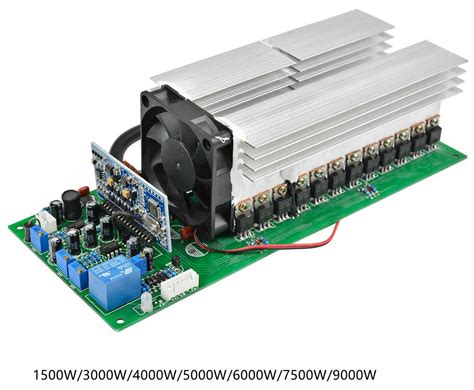
Accelerating Time-to-Market with Integrated Assembly Solutions
In today’s fast-paced electronics industry, time-to-market is a critical factor in maintaining competitive advantage. Turnkey PCB assembly services streamline production by integrating every stage of PCBA (printed circuit board assembly) into a single, cohesive workflow. By consolidating design, component sourcing, PCB assembly, testing, and logistics under one provider, businesses eliminate delays caused by coordinating multiple vendors. This holistic approach ensures seamless communication, reduces administrative overhead, and accelerates project timelines.
A key advantage of integrated assembly solutions lies in their ability to mitigate supply chain risks. Skilled turnkey PCB assembly partners maintain robust supplier networks, securing high-quality components even during shortages. This minimizes bottlenecks and prevents costly production halts. Advanced PCBA processes, such as automated pick-and-place machines and precision soldering, further enhance speed without compromising accuracy. Real-time monitoring systems track progress, enabling rapid adjustments to meet tight deadlines.
Quality assurance is embedded throughout the workflow. Rigorous testing protocols, including automated optical inspection (AOI) and functional testing, identify defects early, reducing rework and ensuring compliance with industry standards. Additionally, design optimization support—often included in turnkey services—helps refine layouts for manufacturability, avoiding redesigns that could delay launch. By aligning design intent with production capabilities, companies avoid costly iterations and achieve faster product validation.
Ultimately, leveraging turnkey PCB assembly translates to shorter development cycles and quicker scalability. With end-to-end accountability, manufacturers can focus on innovation while their partner handles the complexities of PCBA execution. This synergy between speed, precision, and reliability positions businesses to capitalize on market opportunities swiftly and sustainably.
Ensuring Quality Control in Every Stage of PCB Assembly
Quality control is the backbone of reliable PCB assembly processes, particularly in turnkey PCB assembly services where precision and consistency are non-negotiable. From initial design validation to final product delivery, every phase of PCBA production undergoes rigorous checks to eliminate defects and ensure compliance with industry standards. Advanced inspection tools, such as automated optical inspection (AOI) and X-ray testing, are deployed to scrutinize solder joints, component placement, and board integrity. These technologies identify issues like misalignments, insufficient solder, or hidden voids in ball grid arrays (BGAs), enabling corrections before they escalate into costly failures.
Material selection plays a pivotal role in maintaining quality. Trusted turnkey PCB assembly providers source components from certified suppliers, ensuring traceability and minimizing risks of counterfeit parts. In-circuit testing (ICT) and functional testing further validate electrical performance, simulating real-world operating conditions to guarantee boards meet specified parameters. Statistical process control (SPC) methods are often integrated to monitor production trends, allowing proactive adjustments to workflows and reducing variability.
A robust quality management system (QMS) underpins the entire PCBA lifecycle, aligning with standards like IPC-A-610 and ISO 9001. Regular audits, combined with documentation of every assembly step, ensure transparency and accountability. By embedding quality checks at each stage—design review, prototyping, mass production, and final inspection—turnkey solutions not only mitigate risks but also streamline compliance for industries with stringent regulatory demands, such as medical devices or aerospace. This end-to-end oversight minimizes rework, accelerates timelines, and ultimately safeguards the reliability of the final product.
The Role of Design Optimization in Turnkey PCB Services
Design optimization is a cornerstone of effective PCB assembly processes, particularly within turnkey solutions that manage every stage from prototyping to mass production. By refining the design phase, engineers can preemptively address potential manufacturing challenges, ensuring compatibility with automated PCBA workflows and minimizing costly revisions. Critical factors such as component placement, trace routing, and thermal management are analyzed to align with industry standards like IPC guidelines, which directly influence yield rates and long-term reliability. Advanced design software enables simulations to test signal integrity, power distribution, and mechanical fit, reducing the risk of errors that could delay timelines or inflate costs.
A well-optimized design also simplifies material sourcing, as standardized components and footprint libraries streamline procurement for turnkey PCB assembly partners. This proactive approach avoids bottlenecks caused by obsolete or hard-to-source parts, ensuring smoother transitions from design validation to full-scale production. Additionally, optimizing for design-for-manufacturing (DFM) principles—such as panelization strategies and solder mask alignment—enhances compatibility with high-speed pick-and-place machines and reflow ovens, accelerating assembly without compromising quality.
In PCBA projects, even minor design oversights—like insufficient pad sizes or improper spacing—can lead to defects during soldering or testing. By collaborating early with turnkey service providers, companies leverage expert feedback to refine layouts for manufacturability, testability, and scalability. This synergy between design and production not only cuts downtime but also ensures that the final product meets stringent performance criteria, from industrial IoT devices to consumer electronics. Ultimately, design optimization transforms conceptual schematics into robust, production-ready solutions, reinforcing the value of end-to-end PCB assembly services in today’s fast-paced electronics landscape.
Selecting the Right Turnkey PCB Assembly Partner
Choosing a reliable partner for turnkey PCB assembly is critical to achieving seamless integration of design, component sourcing, PCBA, and testing. A qualified provider combines technical expertise with advanced manufacturing capabilities, ensuring your project transitions smoothly from prototype to mass production. Start by evaluating their experience in handling projects similar to yours, particularly within your industry or application. For instance, partners specializing in high-density interconnect (HDI) boards or flexible circuits may better align with complex designs, while those adept in consumer electronics might prioritize scalability and cost efficiency.
Look for certifications like ISO 9001 or IPC-A-610 compliance, which reflect adherence to rigorous quality standards. Transparent communication practices are equally vital—ask about their process for design-for-manufacturability (DFM) feedback, component procurement strategies, and real-time progress tracking. A robust PCB assembly partner should offer end-to-end visibility, minimizing delays caused by supply chain disruptions or design flaws.
Scalability is another key factor. Ensure the provider can accommodate fluctuating production volumes without compromising turnaround times or PCBA quality. Advanced facilities with automated pick-and-place systems, precision soldering, and in-circuit testing (ICT) equipment often deliver higher consistency, especially for high-mix, low-volume (HMLV) orders. Additionally, assess their supply chain management capabilities. Established relationships with component distributors reduce procurement risks, while alternative sourcing plans prevent bottlenecks during shortages.
Finally, prioritize partners that emphasize design optimization support. Collaborative engineering teams can identify cost-saving opportunities, such as material substitutions or panelization strategies, without sacrificing performance. By aligning with a partner that integrates PCB assembly expertise with proactive problem-solving, you streamline workflows, mitigate risks, and accelerate time-to-market. Ensure they provide value-added services like conformal coating, functional testing, or logistics support to create a truly turnkey experience tailored to your production goals.
Optimizing Your Production Workflow with End-to-End Solutions
Implementing turnkey PCB assembly services transforms how businesses approach electronics manufacturing by unifying every stage of production under a single, cohesive strategy. End-to-end solutions eliminate fragmented workflows by integrating design optimization, component sourcing, PCBA (printed circuit board assembly), testing, and logistics into a seamless process. This holistic approach minimizes manual handoffs between suppliers, reduces errors, and accelerates timelines, allowing companies to focus on innovation rather than operational bottlenecks.
A critical advantage lies in design optimization, where collaboration between engineers and manufacturers ensures that circuit layouts align with manufacturing capabilities. By addressing potential issues like component placement or thermal management early, teams avoid costly redesigns and delays. Advanced PCB assembly partners leverage tools such as design for manufacturability (DFM) and design for testing (DFT) checks to refine prototypes before mass production, ensuring reliability and scalability.
Component sourcing is another pillar of streamlined workflows. Trusted turnkey PCBA providers manage global supply chains, securing high-quality parts at competitive prices while mitigating risks like shortages or obsolescence. This proactive supply chain management ensures consistent material availability, preventing production halts and reducing overhead costs.
Automated PCB assembly lines further enhance efficiency, combining precision pick-and-place systems with advanced soldering techniques to produce boards at scale. Post-assembly, rigorous quality control protocols—including automated optical inspection (AOI) and in-circuit testing (ICT)—verify functionality and durability, aligning with industry standards. These integrated checks reduce defect rates and warranty claims, safeguarding brand reputation.
By adopting end-to-end solutions, businesses achieve faster time-to-market while maintaining flexibility. Whether scaling production or adapting to design changes, a unified workflow simplifies adjustments without disrupting timelines. This agility is vital in competitive industries where rapid iteration and reliability define success. Ultimately, turnkey PCB assembly services empower companies to allocate resources strategically, turning complex manufacturing challenges into opportunities for growth.

Conclusion
Adopting turnkey PCB assembly services offers a comprehensive solution to modern manufacturing challenges, seamlessly integrating design, component sourcing, PCBA (printed circuit board assembly), and testing into a single, efficient workflow. By partnering with a turnkey PCB assembly provider, businesses eliminate fragmented processes, reduce dependency on multiple vendors, and mitigate risks associated with supply chain delays. This end-to-end approach not only accelerates time-to-market but also ensures consistent quality through rigorous inspections at every stage, from prototype validation to final product delivery. Moreover, the consolidation of design optimization and manufacturing under one roof minimizes material waste and rework, directly contributing to cost efficiency. For companies aiming to scale production without compromising reliability, turnkey solutions provide the agility to adapt to evolving market demands while maintaining stringent quality standards. Ultimately, leveraging PCB assembly expertise within a unified framework empowers businesses to focus on innovation, leaving the complexities of manufacturing to trusted partners.
FAQs
What is a turnkey PCB assembly service?
A turnkey PCB assembly service handles every stage of production, from component procurement and PCB assembly to testing and final delivery. This end-to-end approach eliminates the need to coordinate with multiple vendors, streamlining the process into a single, integrated solution.
How does PCBA reduce production costs?
By consolidating design, sourcing, PCB assembly, and quality control under one provider, logistical overhead is minimized. Bulk purchasing of components, reduced shipping fees, and optimized workflows further lower expenses. This efficiency ensures cost savings without compromising quality.
Can turnkey services accelerate time-to-market?
Yes. Integrated turnkey PCB assembly solutions shorten timelines by eliminating delays between design, prototyping, and mass production. Advanced planning, automated processes, and real-time communication ensure faster iterations and quicker transitions from concept to market-ready products.
How is quality maintained in turnkey PCB assembly?
Reputable providers implement rigorous quality checks at every stage, including automated optical inspection (AOI), X-ray testing, and functional testing. Component traceability and adherence to industry standards like ISO and IPC further ensure reliability.
Why is design optimization critical for PCBA success?
A well-optimized design minimizes manufacturing errors and reduces rework. Providers offering turnkey services often conduct design for manufacturability (DFM) reviews to identify potential issues early, ensuring compatibility with assembly processes and improving yield rates.
What should I look for in a turnkey PCB assembly partner?
Prioritize expertise in your industry, certifications, transparent communication, and scalability. A partner with robust supply chain networks, advanced equipment, and a proven track record in PCBA will deliver consistent quality and flexibility to meet evolving demands.
Ready to Simplify Your Production Workflow?
Explore how our end-to-end turnkey PCB assembly services can transform your electronics manufacturing. Click here to learn more and start optimizing your production process today!

